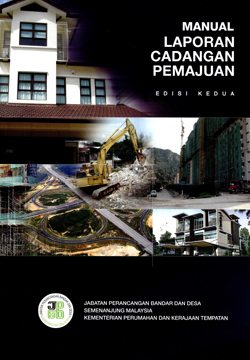IT has been close to two months since I wrote about the Sri Aman project proposed to be built on land once gazetted as open space. Thus far, the developer has issued no statement to rebut my findings. Nor have their lawyers followed up on threats to demolish some of the residents’ backyards which have allegedly encroached into the developer’s land.
At the same time, the area is fenced up and there is no signboard announcing that the place will be developed into a housing area — a requirement if development is to proceed.
What else has been happening over the issue? And how is all of that problematic from a local council and urban planning point of view?
Incomplete applications

Residents in the area have written letters to both the Selangor government and the Petaling Jaya City Council (MBPJ) demanding answers over the issue. According to the rules, it’s mandatory for all letters to receive a written reply. And yet, these residents have not been able to get answers from either the state government or the MBPJ. Additionally, there is no reason why the government cannot respond to the residents’ queries if development rules were complied with.
What are these development rules? The Town and Country Planning Act states that the main document to be included in the application of a planning permission is a development proposal report. This development proposal report includes numerous technical reports such as land ownership documents, geotechnical reports, a survey of all plants and trees in the area, and a land use analysis on how the development will affect neighbouring lands.
In fact, the Federal Town and Country Planning Department produced an entire manual that details all the submissions required in a development proposal report. The purpose of these submissions is also explained.
Here’s an excerpt from the Manual Laporan Cadangan Pemajuan on the purpose of the development proposal report:
“Memastikan setiap permohonan kebenaran merancang mengambil kira aspek-aspek fizikal, sosioekonomi, trafik, alam sekitar dan dasar-dasar yang berkaitan dengan perancangan dan pembangunan.”

In other words, the development proposal report is meant to ensure that every planning permission application takes into account all relevant planning and development aspects.
Yet MBPJ has consistently demonstrated that these development proposal reports are never submitted in full with the planning permission application. In the 2011 objection hearing involving a plot of land next to Phileo Damansara II, Section 16, Petaling Jaya, council officers told residents the developer did not have to submit all the required documents beforehand.
And again, in the recent public objection hearing for University Malaya’s application to redevelop 30 of their residential houses in Section 12, Petaling Jaya into a Health Metropolis, MBPJ councillor Lee Suet Sen said: “There is no proper traffic impact study…”
How can the council call for an objection hearing and yet admit publicly to not having all the documents and reports? An objection hearing can only be done after the application has been accepted and processed by the local council.
Both BN and PR
Despite the existence of rules that the submission of documentation is required before an application is processed, most ratepayers will simply accept the answers of government officers and councillors without further questioning. That is to be expected because for the most part, many would find it challenging to read up on the technical details and government rules that are supposed to be implemented.
At the same time, politicians or government officers are unlikely to encourage citizens to question further.
What does all of this do? It allows developments to go ahead. And if they don’t because there is enough noise from residents, the developer is able to reapply to develop a piece of land at a much later date. For example, attempts to develop the Taman Aman and Section 16 plots of land were first done in 1993 and 1996 respectively. Even back then, there was no resolution to their respective cases.

What else is important to note about these cases? They all happened under both the Barisan Nasional and Pakatan Rakyat governments. ![]()
KW Mak is a Petaling Jaya ratepayer. He is opposed to the University Malaya Health Metropolis because MBPJ failed to follow the rules, which if followed would have invalidated the proposal even before the hearing to gather residents’ feedback.

